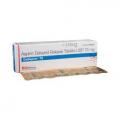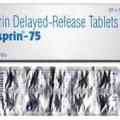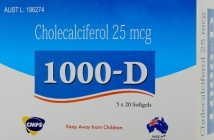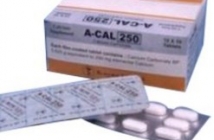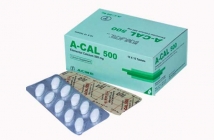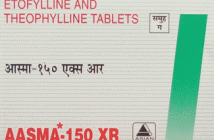Home / Categories / CASPY-75MG

CASPY-75MG
(10)
ASPIRIN-75MG
DRUGS AFFECTING BLOOD AND BLOOD FORMATION-ANTITHROMBOTIC DRUGS
NEPAL PHARMACEUTICAL LAB-LAPEN DIVISON
Product Details
Drug Facts
Aspirin (Acetylsalicylic Acid; ASA)
Action
Indications
Contraindications
Route/Dosage
Interactions
Lab Test Interferences
Adverse Reactions
PrecautionsPatient Care Considerations
Administration/Storage
Assessment/Interventions
Patient/Family Education
(ASS-pihr-in)Arthritis Foundation Pain Reliever, Aspergum, Bayer Children's Aspirin, Bayer Low Adult Strength, Easprin, Ecotrin, Ecotrin Adult Low Strength, Ecotrin Maximum Strength, Empirin, Extended Release Bayer 8-Hour, Extra Strength Bayer Enteric 500 Aspirin, Genprin, Genuine Bayer, ½ Halfprin, Halfprin 81, Heartline, Maximum Bayer, Norwich Extra-Strength, Regular Strength Bayer Enteric Coated Caplets, St. Joseph Adult Chewable Aspirin, ZORprin,  APO-Asa, Asaphen, Entrophen, Entrophen Extra Strength, Entrophen 10, Entrophen 15 Maximum Strength, Novasen, PMS-ASAClass: Analgesic/salicylate
APO-Asa, Asaphen, Entrophen, Entrophen Extra Strength, Entrophen 10, Entrophen 15 Maximum Strength, Novasen, PMS-ASAClass: Analgesic/salicylate
 Action Inhibits prostaglandin synthesis, resulting in analgesia, anti-inflammatory activity and platelet aggregation inhibition; reduces fever by acting on the brain's heat-regulating center to promote vasodilation and sweating.
Action Inhibits prostaglandin synthesis, resulting in analgesia, anti-inflammatory activity and platelet aggregation inhibition; reduces fever by acting on the brain's heat-regulating center to promote vasodilation and sweating.
 Indications Treatment of mild-to-moderate pain; fever; various inflammatory conditions; reduction of risk of death or MI in patients with previous infarction or unstable angina pectoris or recurrent transient ischemia attacks or stroke in men who have had transient brain ischemia caused by platelet emboli. Unlabeled use(s): Prevention of cataract formation; prevention of toxemia of pregnancy; improvement of inadequate uteroplacental blood flow in pregnancy.
Indications Treatment of mild-to-moderate pain; fever; various inflammatory conditions; reduction of risk of death or MI in patients with previous infarction or unstable angina pectoris or recurrent transient ischemia attacks or stroke in men who have had transient brain ischemia caused by platelet emboli. Unlabeled use(s): Prevention of cataract formation; prevention of toxemia of pregnancy; improvement of inadequate uteroplacental blood flow in pregnancy.
 Contraindications Hypersensitivity to salicylates or NSAIDs; hemophilia, bleeding ulcers or hemorrhagic states.
Contraindications Hypersensitivity to salicylates or NSAIDs; hemophilia, bleeding ulcers or hemorrhagic states.
 Route/Dosage
Route/Dosage
Analgesic/Antipyretic
ADULTS: PO 325 to 650 mg q 4 hr prn; 500 mg q 3 hr prn; 1000 mg q 6 hr prn. CHILDREN (2 TO 12 YR): PO 10 to 15 mg/kg/dose q 4 hr prn (up to 80 mg/kg/day).
Arthritis and Other Rheumatic Conditions
ADULTS: PO 3.2 to 6 g/day in divided doses.
Juvenile Rheumatoid Arthritis
CHILDREN: PO 60 to 110 mg/kg/day in divided doses q 6 to 8 hr.
Acute Rheumatic Fever
ADULTS: PO 5 to 8 g/day, initially, for up to 2 wk. Subsequent doses are based on patient response. CHILDREN: PO 75 to 100 mg/kg/day.
Transient Ischemic Attacks in Men
ADULTS: PO 1300 mg/day in 2 to 4 doses.
Myocardial Infarction Prophylaxis
ADULTS: PO 160 to 325 mg/day.
Kawasaki Disease
CHILDREN: PO 80 to 180 mg/kg/day during acute febrile period; 10 mg/kg/day after fever resolves.
 Interactions
Interactions
Alcohol: May increase risk of GI ulceration and prolong bleeding time. Antacids, urinary alkalinizers, and corticosteroids: May decrease aspirin levels. Anticoagulants, oral and heparin: May increase risk of bleeding. Carbonic anhydrase inhibitors (eg, acetohexamide), methotrexate, valproic acid: May increase levels of these drugs. Probenecid, sulfinpyrazone: May decrease uricosuric effect. Sulfonylureas, insulin: Aspirin (> 2 g/day) may potentiate glucose lowering.
 Lab Test Interferences May increase levels of serum uric acid, cause false-positive readings of urine glucose by copper reduction method (Clinitest) and false-negative readings by glucose oxidase method (Clinistix); may interfere with urine tests of 5-hydroxyindoleacetic acid, ketone, phenolsulfonphthalein, vanillylmandelic acid.
Lab Test Interferences May increase levels of serum uric acid, cause false-positive readings of urine glucose by copper reduction method (Clinitest) and false-negative readings by glucose oxidase method (Clinistix); may interfere with urine tests of 5-hydroxyindoleacetic acid, ketone, phenolsulfonphthalein, vanillylmandelic acid.
 Adverse Reactions
Adverse Reactions
EENT: Dizziness; tinnitus. GI: Nausea; dyspepsia; heartburn; bleeding. HEMA: Increased bleeding times; anemia; decreased iron concentration. OTHER: Hypersensitivity reactions may include urticaria, hives, rashes, angioedema and anaphylactic shock.
 Precautions
Precautions
Pregnancy: Category D. Lactation: Excreted in breast milk. Children: Reye's syndrome has been associated with aspirin administration to children (including teenagers) with acute febrile illness. Do not use without consulting physician. GI disorders: Can cause gastric irritation and bleeding. Hepatic impairment: May cause hepatotoxicity in patients with impaired liver function. Hypersensitivity: Reaction may include bronchospasm and generalized urticaria or angioedema; patients with asthma or nasal polyps have greatest risk. Renal impairment: May decrease renal function or aggravate kidney diseases. Surgical patients: Aspirin may increase risk of postoperative bleeding. If possible, avoid use 1 week before surgery.
PATIENT CARE CONSIDERATIONS
 Administration/Storage
Administration/Storage
- Administer after meals, with food or antacid to minimize gastric irritation.
- Do not crush or have patient chew enteric-coated or timed-release caplets.
- Store oral forms at room temperature in tightly closed container. Store suppositories in a cool location or refrigerate. Do not freeze.
 Assessment/Interventions
Assessment/Interventions
- Obtain patient history, including drug history and any known allergies, particularly to tartrazine (yellow dye #5). Note asthma, hay fever, and nasal polyps.
- Ensure that bleeding time and prothrombin time have been evaluated before beginning large dose long-term therapy.
- Monitor hemoglobin or guaiac (hemoccult) stool periodically during therapy.
- Monitor during long-term therapy for tinnitus, GI disturbances, bleeding from gums, black tarry stools, or prolonged fever lasting > 3 days.
- If signs of bleeding, black tarry stools, or tinnitus occur, withhold medication and notify physician.
- Observe for rash, urticaria, dyspnea, or anaphylactic reaction. If these occur, notify physician immediately.
OVERDOSAGE: SIGNS & SYMPTOMS Nausea, vomiting, tinnitus, dizziness, respiratory alkalosis, metabolic acidosis, hemorrhage, convulsions
 Patient/Family Education
Patient/Family Education
- Instruct patient to take drug with food or after meals and with full glass of water. Explain that antacids should be avoided within 1 to 2 hr after ingestion of enteric-coated tablets.
- Tell patient to discard any aspirin that has a vinegar-like odor.
- Instruct patient to report ringing in ears or unusual bleeding, bruising, or persistent GI pain.
- Advise patient on long-term therapy to inform physician or dentist before seeking surgery or dental care.
- Tell patient on sodium-restricted diet to limit use of effervescent or buffered aspirin preparations.
- Caution parents to avoid giving aspirin to children or teenagers with flu-like symptoms or chickenpox without first consulting physician.
- Instruct patient to avoid intake of alcoholic beverages or other CNS depressants.
Books@Ovid
Copyright © 2003 Facts and Comparisons
David S. Tatro
A to Z Drug Facts

